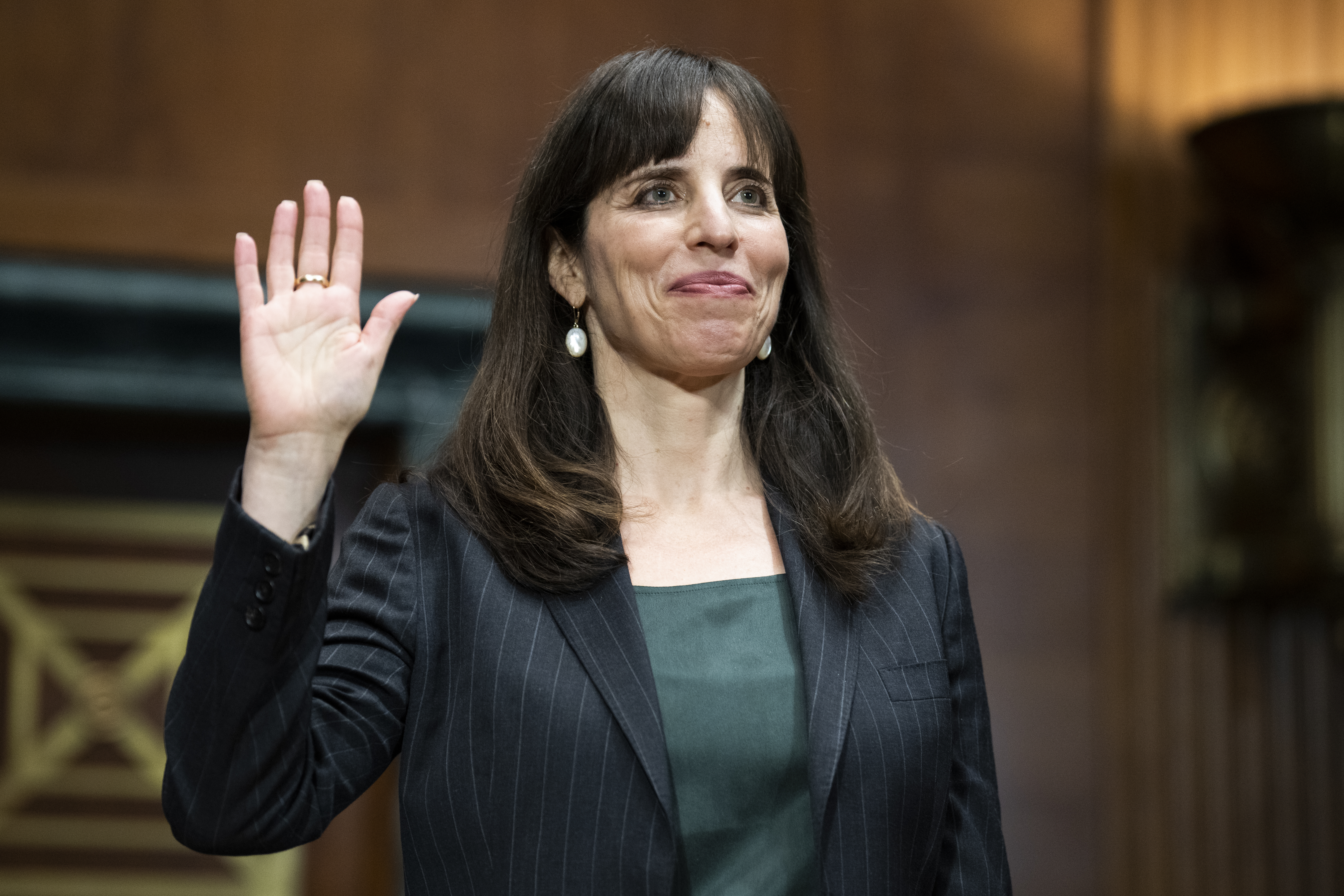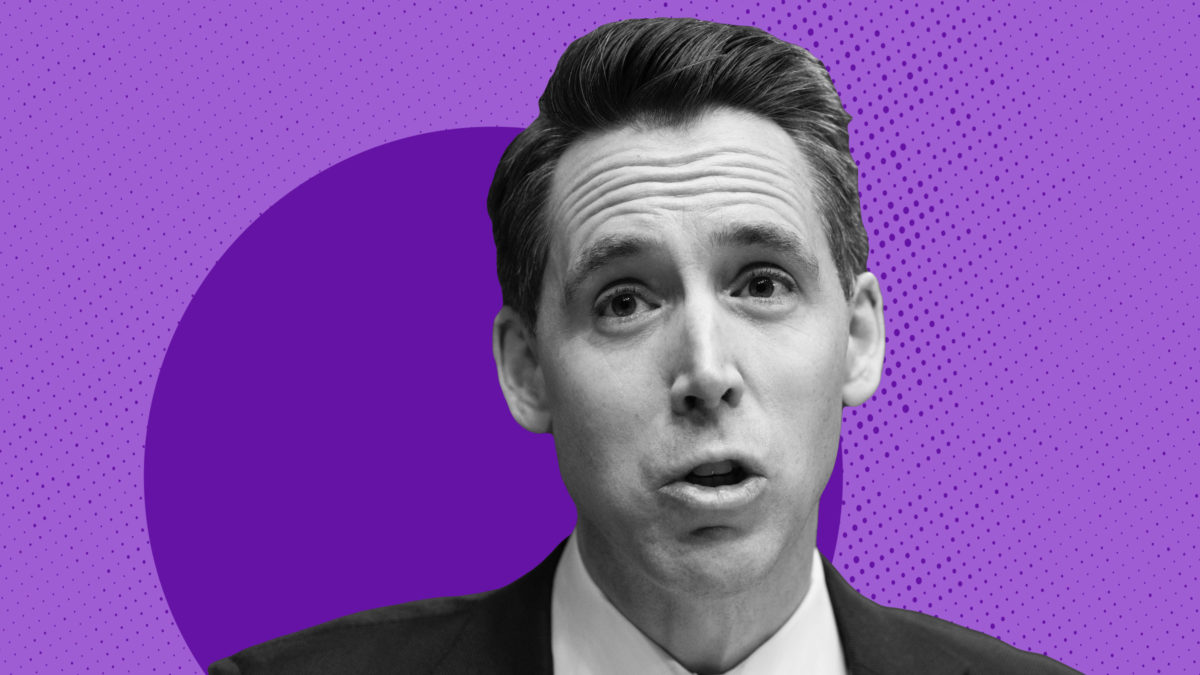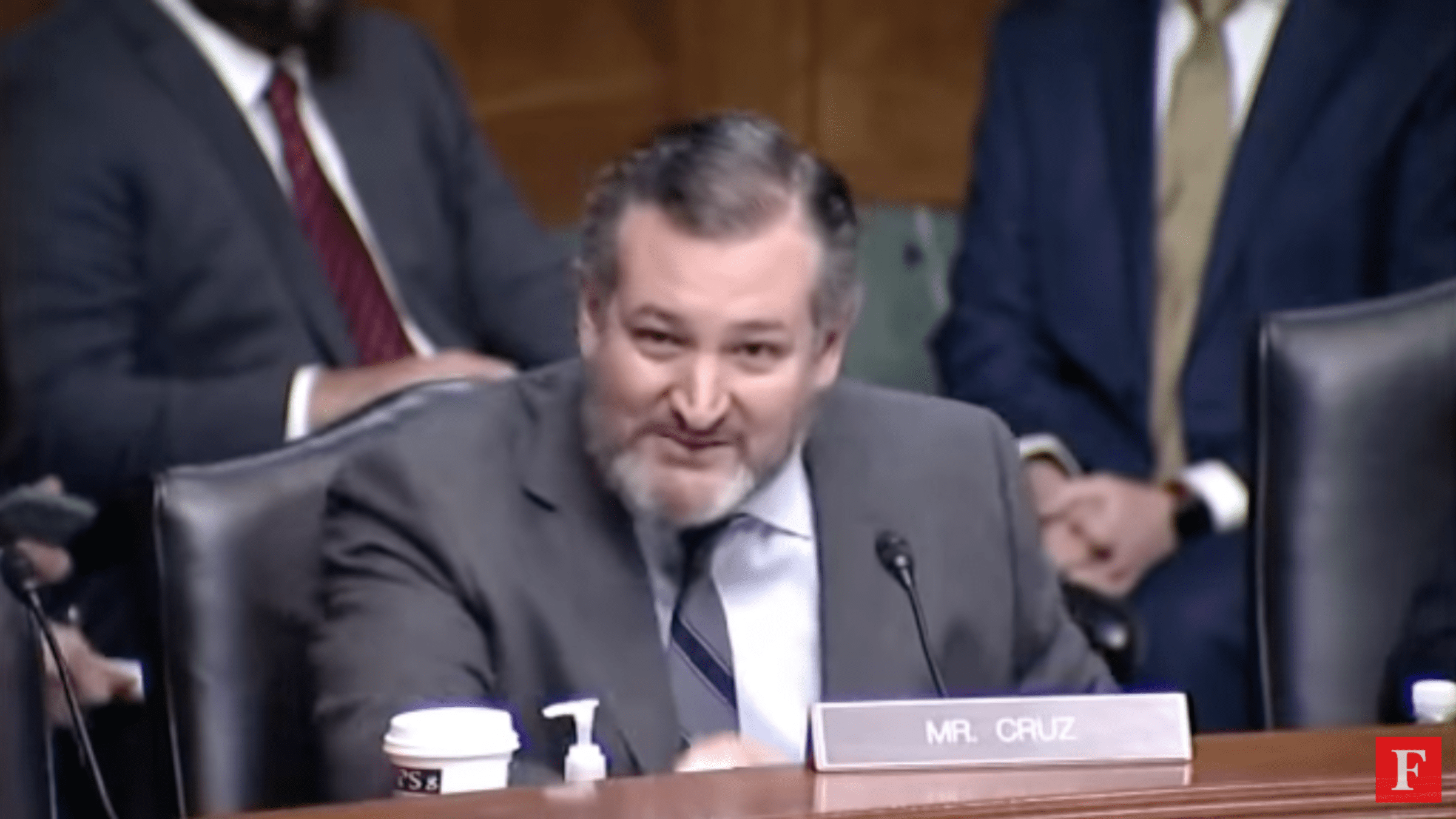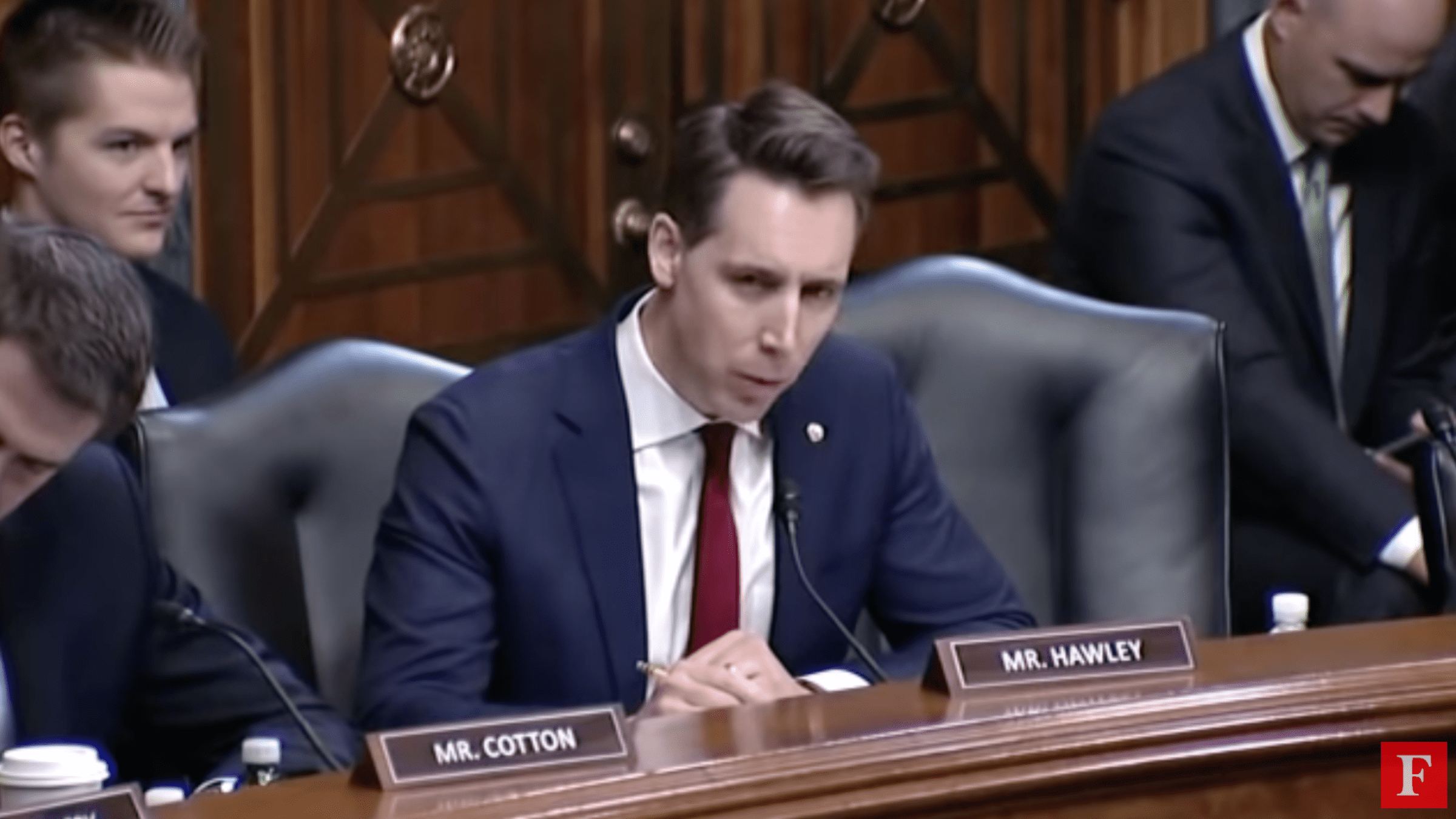Yesterday, Nina Morrison, President Joe Biden’s nominee for a seat on the U.S. District Court for the Eastern District of New York, endured what has become the usual line of questioning from Senate Judiciary Committee Republicans, which boils down to, in effect, “How dare you want to be a judge if you have ever represented criminals who are also poor?”
Morrison is a 20-year veteran of the Innocence Project, which works on exonerating wrongly convicted people using DNA testing; during her tenure, Morrison has helped free roughly 30 people from prison, including death row. Her nomination is part of the Biden administration’s concerted effort to appoint more public defenders and criminal defense lawyers to the federal bench, much to the chagrin of Senate Republicans, who are very angry Biden has the gall to nominate anyone other than three Federalist Society law students in a trench coat.
In a functional society, Nina Morrison’s work would be among the most laudable things a lawyer could do. But because our society includes people like Texas Senator Ted Cruz, Morrison got lectures like this: “Across this country, Americans are horrified at skyrocketing crime rates, at skyrocketing homicide rates, at skyrocketing burglary rates, at skyrocketing carjacking rates,” he said. “All of those are the direct result of the policies you’ve spent your entire lifetime advancing.” He went on to ask Morrison if she cared about “the innocent people being killed because of the policies you’re implementing,” as if, again, representing people who are exonerated by DNA evidence is among the nation’s leading causes of preventable death.
Clip via YouTube
Unsurprisingly, Morrison isn’t the first person from the indigent defense side to face these questions. In late December, during his confirmation hearing for the District Court for the Northern District of Ohio, Charles Fleming, a 30-year public defender, got dinged for his career by Iowa Senator and noted wildlife menace Chuck Grassley. “I’ve spoken before about the need to determine whether a nominee is a Bill of Rights judge and not a criminal defense judge.” he said. “From his record, I’m concerned Mr. Fleming falls into the second category.” The right to a public defender springs directly from the Bill of Rights, of course, but these are apparently not the type of details with which Grassley concerns himself.
Earlier this month, Missouri Senator and erstwhile insurrection enthusiast Josh Hawley went after Kenly Kato, a former federal public defender, later tweeting about how she’s “soft on crime.” Kato’s sin, per Hawley, is that she wrote an article two decades ago arguing that people who used fake security clearances at airports shouldn’t be charged as felons. During the hearing, Kato was forced to explain to Hawley, who graduated from Yale Law School and clerked for Chief Justice John Roberts on the Supreme Court, that she was doing what she did for all her clients, which was to “zealously advocate on their behalf and to ensure that their Sixth Amendment rights were fulfilled.”
On Wednesday, Hawley was just as critical of Morrison, vowing to oppose her confirmation and “anyone else the administration sends to us who do not understand the necessity of the rule of law.” Maybe they stopped teaching the Sixth Amendment at Yale around the same time they stopped teaching the Electoral Count Act.
Clip via YouTube
The common thread of these lines of attack is that poor people do not deserve the same constitutional protections afforded to everyone else. Republicans don’t worry about the nefarious tendencies of lawyers who represent rich people accused of crimes. Take, for example, Eleventh Circuit Judge Andrew L. Brasher, a Trump nominee whose early legal career involved, among other things, getting AstraZeneca, GlaxoSmithKline, and Novartis out from under a 10-figure fraudulent drug pricing fine imposed by the state of Alabama. Truly a noble victory. But he faced no meaningful GOP opposition at his confirmation vote, because people like Brasher represent the “right” people—the powerful corporate interests with which Republicans most identify.
And, of course, prosecutors are always A-okay. Prosecutors have historically been overrepresented on the federal bench, but Trump juiced the numbers even further, choosing 74 prosecutors out of his first 200 judicial nominees Somehow, this trend did not lead to Grassley opposing a wave Trump nominees on the grounds that their professional experience meant they couldn’t be “Bill of Rights judges.”

Nina Morrison is sworn in during her Senate Judiciary Committee confirmation hearing on Wednesday (Tom Williams/CQ-Roll Call, Inc via Getty Images)
These attacks on Nina Morrison aren’t worse because she’s a criminal defense lawyer who represents innocent people; criminal defense lawyers who do not spend their days exonerating people using DNA evidence are no less qualified for or deserving of seats on the federal bench. But the facially absurd choice to level the same tired, fearmongering attacks at a lawyer representing people who literally did not do crimes lays bare the hollow nature of right-wing soft-on-crime rhetoric: Hawley’s argument is, functionally, that providing any indigent defense at any stage of the process is antithetical to the rule of law and worthy of punishment and scorn.
By design, the criminal legal system is stacked against poor and marginalized people who are unable to access the resources that wealthy people so freely exploit to avoid its worst consequences. Half the Constitution is dedicated to trying to make this playing field a tiny bit less uneven, to which conservatives have responded by spending decades working to undermine it. They are hostile to defense attorneys and post-conviction attorneys and public defenders sitting on the bench for the simple reason that they don’t think poor people accused of crimes deserve anything, really, other than perhaps the inside of a prison cell for as long as possible.
There are lots of awful things judicial nominations can’t fix. They can’t fix the devastating access to justice gap for indigent people who don’t receive any legal help in civil cases. They can’t fix the abhorrent underfunding of public defense across the country, which has chipped away at the fundamental right Gideon v. Wainwright was supposed to protect. Judicial nominations can, however, put people on the bench who understand the plight of the most vulnerable people who come before them, and who will treat people accused of crimes carefully and thoughtfully, no matter how much they have in their bank accounts.
If Cruz and company were to get their way, none of that happens. Wealthy white-collar types will be treated leniently, and corporations will continue to face basically no accountability whatsoever. But the rest of us, and especially the least of us, will be at the mercy of an endless parade of former Clarence Thomas clerks who simply don’t believe the judicial system should protect anyone but the rich and powerful.



